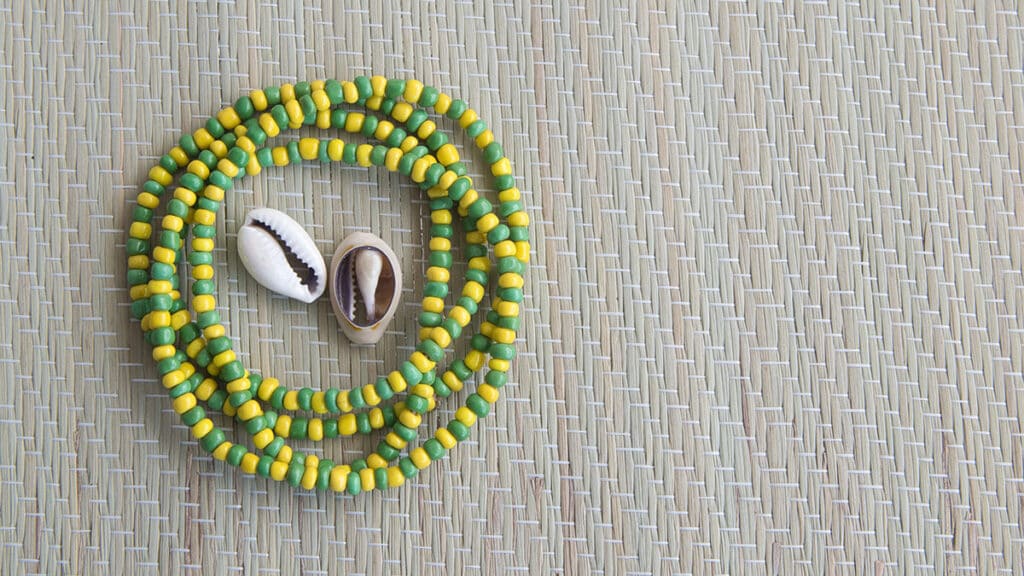
Orunmila is the orisha of wisdom and divination, first priest and creator of Ifá, the Nigerian Yoruba system of divination. His feast day in Cuba is October 4.
Orunmila
Orunmila (shortened to Orula) originates in Nigerian Yoruba tradition, though most Americans know him best through Cuban Yoruba traditions. He is also venerated in Brazilian Candomble and Umbanda, Cuban Santería (Lucumí), Haitian Vodou, and various forms of Folk Catholicism. It’s worth noting that outsiders see these as African Diasporic religions, though many followers in the Americas consider themselves good Catholics.
Yoruba traditions are oral traditions that vary by region, place, community, and even by family. That’s not any better or worse than written traditions. Some sacred stories describe Orunmila as a primordial orisha (ara orun). Others consider him to be a historical figure born around 500 BCE at the founding of Ilé-Ifè, the Yoruba sacred city in what is now Nigeria.
Orunmila was present when the supreme Oludumare created the universe, so he knows the destiny of everything. Eshu, the messenger of God and lord of the crossroads is his helper (Eshu in Nigeria becomes Eleguá in Cuba and Puerto Rico, Papa Legba in Haiti, and Elegbara in Brazil).
Characteristics
Orunmila’s colors are yellow and green. His numbers are 4 and 16. His day is Sunday. His tools are the Ifá board and the iruke horse hair fly whisk, which is a sign of royalty, and used to ward off evil.
In Mother Afrika, he stands on his own, but in the Americas, Orunmila is syncretized with Saint Francis of Assisi. For context, Orunmila is to Ifá (Yoruba), as Mohammed is to Islam, Jesus is to Christianity, Abraham is to Judaism, and Zarathustra is to Zoroastrianism, the Persian religion on which the other Abrahamic religions are based. Orunmila is the Yoruba prophet.
